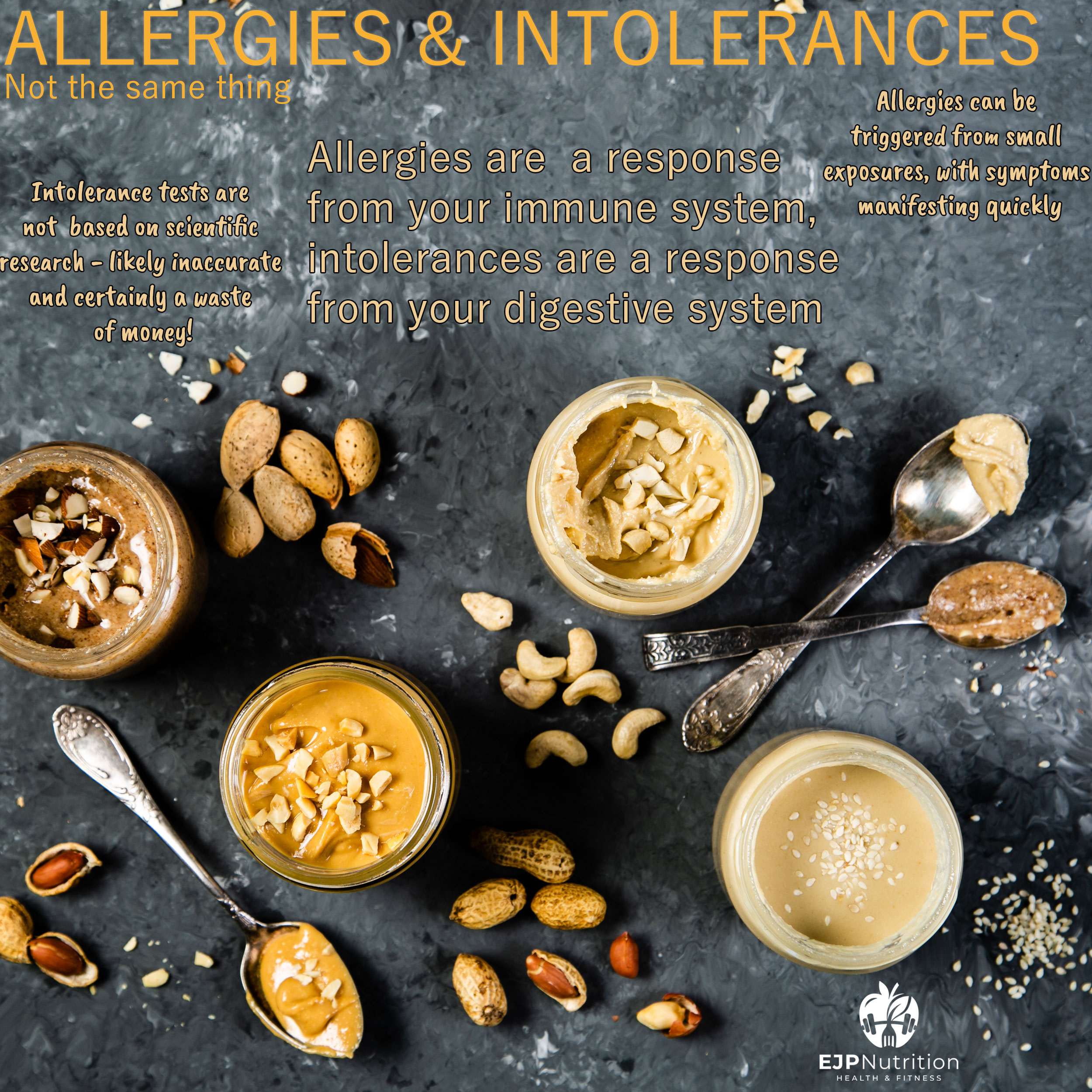Allergies & intolerances; firstly, the two are not the same. An allergy is an immune response, where your body thinks there is something dangerous it needs to get out of your system. This leads to an abnormal release of histamines, which can cause some of the symptoms you might have seen such as hives, rashes, itching or redness and difficulties breathing. This can develop rapidly, from only small exposures, and is potentially lethal. Common allergies include nuts, seafood, milk, sesame and eggs.
An intolerance stems from the digestive system, not the immune system. This could be from lacking the right enzyme to break down a sugar molecule, such as lactose intolerance (milk). Food intolerances (or sensitivities) are often dose dependent and can take a few hours after exposure for symptoms to occur. These include bloating, stomach pain and diarrhoea. You may be fine consuming up to a certain level, but experience discomfort with higher amounts. High being subjective, person to person.
There’s a prevalence of people self-diagnosing allergies and intolerances, leading to people cutting out (often unnecessarily) foods, or in some instances whole groups of foods.
That can become an issue by increasing the risk of nutritional deficiencies, from something you had been getting but have now removed. Another negative is it can lead to restrictive, rigid food rules and lead to stress about your diet, which I’ve posted about at length before!
What about the results from an intolerance test? Unfortunately, while this is a growing area, it’s totally lacking in regulation and effectiveness. It would be great if they did work! However, About such tests the NHS website summarises; [they] are not based on scientific evidence and are not recommended by the British Dietary Association.
When you get a list of items you are ‘intolerant’ to from these tests, often it’s actually a marker of foods you have been exposed to. So, anything you’ve recently eaten is somewhat likely show up in the result! Please don’t waste your money. If you have a genuine concern, speak to you doctor who can properly assess and diagnose any problems.


